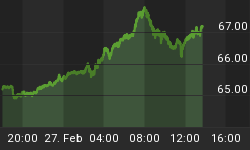Online shopping juggernaut, Amazon Inc. (NASDAQ:AMZN), is as daring as they come, but knows a lost cause when it sees one. After nearly two decades squaring it off with the likes of Alibaba Group (NYSE:BABA), Tencent Holdings (OTCPK:TCEHY) and JD.com (NASDAQ:JD) in the mercurial Chinese market, in 2019, Amazon finally threw in the towel. The e-commerce company shut down its Chinese online marketplace in July 2019, in effect meaning that Amazon.cn is no longer open to third-party sellers, leaving the space to China’s online heavyweights.
Amazon was a bit vague regarding the reason(s) why it decided to hang its Chinese ecommerce boots, but a carefully worded statement appeared to imply that the Chinese were not buying a ton of local stuff, preferring instead to ‘‘buy high quality authentic goods from overseas”.
Well, it appears that China’s reputation as the world's top counterfeiting haven is not about to go away any time soon.
On Thursday, the Office of the United States Trade Representative (USTR) released a 56-page report wherein it name-checked some of China's biggest companies, including platforms operated by ecommerce giants Alibaba Inc. (NYSE:BABA) and Tencent Holdings Ltd (OTCPK:TCEHY), for allegedly dealing in counterfeit and pirated goods.
"China continues to be the number one source of counterfeit products in the world," the UTSR report has declared.
The annual UTSR list includes 77 entities spanning over a dozen countries that are allegedly engaging in "counterfeiting or copyright piracy."
Chinese menace
The USTR has, however, pointed specifically to Chinese firms, noting that several other popular platforms from China "continue to be listed," such as Taobao, a popular online shopping portal run by Alibaba and Pinduoduo Inc. (NASDAQ:PDD), an e-commerce upstart that allows people to save money when they enlist friends to buy the same item. Also on the list is Baidu Wangpan, a cloud storage service owned by Chinese search giant Baidu Inc. (NASDAQ:BIDU), which the UTSR has accused of allowing copyright infringers to widely share links to pirated movies, TV shows, and books.
"Counterfeit and pirated goods from China, together with [transferred] goods from China to Hong Kong, accounted for 83% of the value of such items seized by U.S. customs and border agents in 2020,’’ the trade agency has revealed.
On Friday, Tencent hit back on the UTSR report saying "we strongly disagree with the decision made by the United States Trade Representative and are committed to working collaboratively to resolve this matter.’’ Tencent reaffirmed that the protection of intellectual property "is central to our business, including education, enforcement and close collaboration with rights holders, government agencies and law enforcement."
Plenty of American retailers have failed to get a proper foothold in the pivotal Chinese market, partly due to unethical business practices by their Chinese cohorts
Amazon was probably doomed to join the scores of Western retailers such as Walmart Inc. (NYSE:WMT), Best Buy(NYSE:BBY), Home Depot (NYSE:HD) Tesco (TSCO:LN) and others that have failed to crack the Middle Kingdom. Despite being one of the most admired online retailers, Amazon only managed to take a paltry one percent market share of China’s domestic e-commerce market compared to 75 percent for Alibaba and JD, proving just how tough the going was for the American icon.
There are several plausible reasons why Amazon finally decided to call it quits in China.
First off, Chinese consumers have become spoiled by local marketplaces such as Alibaba’s Tmall and Taobao which are able to offer a seamless user experience that Amazon cannot easily match. This includes mobile shopping apps and perks such as overnight free deliveries in the same province. Amazon, on the other hand, requires orders to hit minimums of 59 yuan to 200 yuan ($8.79 to $29.81) whereas Chinese players frequently offer free shipping with no minimum orders.
Finally, many luxury brands prefer not to do business with Amazon due to the company’s stricter standards--which, unfortunately, is not something you can say about its Chinese rivals.
Alibaba and other Chinese marketplaces have frequently been accused of allowing too many counterfeit products on their platforms. China’s third-party marketplace has become so cutthroat that businesses frequently engage in unethical practices such as manipulating product listings so as to rank higher on Amazon. This includes using dirty tactics such as placing fake reviews on competitors’ sites, paying bribes and posting fake sales--all of which violate Amazon rules.
Constantly policing Amazon.cn might not be worth the trouble for Amazon considering the diminutive returns and the risk of tarnishing its reputation.
But as Amazon has correctly observed, cross-border trade is one area where the company shines and can gain a nice competitive advantage. The company has already garnered a respectable market share of China’s cross-border e-commerce which gives it a nice launching pad.
















